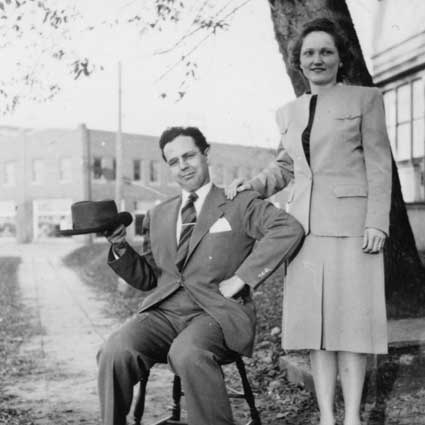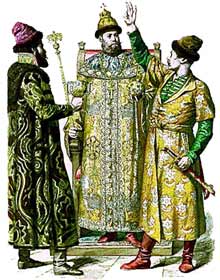 This article in the NYT made me laugh. Just this morning, while driving my kids to tennis lessons, we saw a Bichon Frise. I said, “Hey kids, it’s a Bitchin’ Freeze.” Devon, age 9, said, “Mom, is our dog a bitch?” Lara replied, “You just said bitch.” Devon, “Yes, but not IN VAIN!” Ho, ho, ho.
This article in the NYT made me laugh. Just this morning, while driving my kids to tennis lessons, we saw a Bichon Frise. I said, “Hey kids, it’s a Bitchin’ Freeze.” Devon, age 9, said, “Mom, is our dog a bitch?” Lara replied, “You just said bitch.” Devon, “Yes, but not IN VAIN!” Ho, ho, ho.
August 7, 2007It’s a Female Dog, or Worse. Or Endearing. And Illegal?
By MICHAEL M. GRYNBAUM
The New York City Council, which drew national headlines when it passed a symbolic citywide ban earlier this year on the use of the so-called n-word, has turned its linguistic (and legislative) lance toward a different slur: bitch.
The term is hateful and deeply sexist, said Councilwoman Darlene Mealy of Brooklyn, who has introduced a measure against the word, saying it creates “a paradigm of shame and indignity” for all women.
But conversations over the last week indicate that the “b-word” (as it is referred to in the legislation) enjoys a surprisingly strong currency — and even some defenders — among many New Yorkers.
And Ms. Mealy admitted that the city’s political ruling class can be guilty of its use. As she circulated her proposal, she said, “even council members are saying that they use it to their wives.”
The measure, which 19 of the 51 council members have signed onto, was prompted in part by the frequent use of the word in hip-hop music. Ten rappers were cited in the legislation, along with an excerpt from an 1811 dictionary that defined the word as “A she dog, or doggess; the most offensive appellation that can be given to an English woman.”
While the bill also bans the slang word “ho,” the b-word appears to have acquired more shades of meaning among various groups, ranging from a term of camaraderie to, in a gerund form, an expression of emphatic approval. Ms. Mealy acknowledged that the measure was unenforceable, but she argued that it would carry symbolic power against the pejorative uses of the word. Even so, a number of New Yorkers said they were taken aback by the idea of prohibiting a term that they not only use, but do so with relish and affection.
“Half my conversation would be gone,” said Michael Musto, the Village Voice columnist, whom a reporter encountered on his bicycle on Sunday night on the corner of Seventh Avenue South and Christopher Street. Mr. Musto, widely known for his coverage of celebrity gossip, dismissed the idea as absurd.
“On the downtown club scene,” he said, munching on an apple, the two terms are often used as terms of endearment. “We divest any negative implication from the word and toss it around with love.”
Darris James, 31, an architect from Brooklyn who was outside the Duplex, a piano bar in the West Village, on Sunday night was similarly opposed. “Hell, if I can’t say bitch, I wouldn’t be able to call half my friends.”
They may not have been the kinds of reaction that Ms. Mealy, a Detroit-born former transit worker serving her first term, was expecting. “They buried the n-word, but what about the other words that really affect women, such as ‘b,’ and ‘ho’? That’s a vile attack on our womanhood,” Ms. Mealy said in a telephone interview. “In listening to my other colleagues, that they say that to their wives or their friends, we have gotten really complacent with it.”
The resolution, introduced on July 25, was first reported by The Daily News. It is being considered by the Council’s Civil Rights Committee and is expected to be discussed next month.
Many of those interviewed for this article acknowledged that the b-word could be quite vicious — but insisted that context was everything.
“I think it’s a description that is used insouciantly in the fashion industry,” said Hamish Bowles, the European editor at large of Vogue, as he ordered a sushi special at the Condé Nast cafeteria last week. “It would only be used in the fashion world with a sense of high irony and camp.”
Mr. Bowles, in salmon seersucker and a purple polo, appeared amused by the Council measure. “It’s very ‘Paris Is Burning,’ isn’t it?” he asked, referring to the film that captured the 1980s drag queen scene in New York.
The b-word has been used to refer to female dogs since around 1000 A.D., according to the Oxford English Dictionary, which traces the term’s derogatory application to women to the 15th century; the entry notes that the term is “not now in decent use.”
But there is much evidence that the word — for better or worse — is part of the accepted vernacular of the city. The cover of this week’s New York magazine features the word, and syndicated episodes of “Sex and the City,” the chronicle of high-heeled Manhattan singledom, include it, though some obscenities were bleeped for its run on family-friendly TBS. A feminist journal with the word as its title is widely available in bookstores here, displayed in the front rung at Borders at the Time Warner Center.
Robin Lakoff, a Brooklyn-born linguist who teaches at the University of California, Berkeley, said that she despised the word, but that enforcing linguistic change through authority “almost never works,” echoing comments from some New Yorkers who believed a ban would only serve to heighten the word’s power.
“If what the City Council wants to do is increase civility, it would have to be able to contextualize it,” said Ms. Lakoff, who studies language and gender. “You forbid the uses that drive people apart, but encourage the ones that drive people together. Which is not easy.”
Councilman Leroy G. Comrie Jr., the Queens Democrat who successfully sponsored a symbolic moratorium on the n-word that was adopted Feb. 28, said he supported Ms. Mealy’s measure, but acknowledged that the term had many uses.
“We want to make sure the context that it’s used is not a negative one,” Mr. Comrie said yesterday.
Back at the West Village piano bar on Sunday evening, Poppi Kramer had just finished up her cabaret set. She scoffed at the proposal. “I’m a stand-up comic. You may as well just say to me, don’t even use the word ‘the.’ ”
But at least one person with a legitimate reason to use the word saw some merit in cutting down on its use.
“We’d be grandfathered in, I would think,” said David Frei, who has been a host of the Westminster Kennel Club dog show in New York since 1990. The word is a formal canine label that appears on the competition’s official materials. But Mr. Frei said he worried about the word’s impact on some viewers, especially younger ones.
“I think we have to take responsibility for that word on the air. The reality is it’s in the realm of responsible conduct to not use that word anymore.

 Escaping tyranny by sailing to the New World was a temporary fix. A ghost has come back to haunt us. We have another King George.
Escaping tyranny by sailing to the New World was a temporary fix. A ghost has come back to haunt us. We have another King George.  Protect America, my ass. To say that this shocking theft of our freedom is to save us from terrorists, from Al Qaeda, is a frank lie. Terrorists are well-trained. They move with stealth. They have face-to-face meetings. They don’t call each other’s cell phones and chitchat about the latest and greatest plans. Our government is well aware of this. No, PAA is directed at us. The American public. Especially those of us who slander the dictator.
Protect America, my ass. To say that this shocking theft of our freedom is to save us from terrorists, from Al Qaeda, is a frank lie. Terrorists are well-trained. They move with stealth. They have face-to-face meetings. They don’t call each other’s cell phones and chitchat about the latest and greatest plans. Our government is well aware of this. No, PAA is directed at us. The American public. Especially those of us who slander the dictator. 
 I was very heartened to catch sight in the Indy of a local protest against
I was very heartened to catch sight in the Indy of a local protest against 






 They come together from different states, Benedictines, Dominicans, the Loretto Community, the Sisters of Charity, the Sisters of Mercy, the Sisters of St Francis, Pox Christi, the Christian Peacemakers, even a nun visiting from Guatemala, to pray a silent vigil at the gates of Peterson AFB in remembrance of the two greatest war crimes ever perpetrated, Hiroshima and Nagasaki.
They come together from different states, Benedictines, Dominicans, the Loretto Community, the Sisters of Charity, the Sisters of Mercy, the Sisters of St Francis, Pox Christi, the Christian Peacemakers, even a nun visiting from Guatemala, to pray a silent vigil at the gates of Peterson AFB in remembrance of the two greatest war crimes ever perpetrated, Hiroshima and Nagasaki.

 My little Devon, age 9, took this picture of us yesterday at Elitch Gardens. She looked like a tiny ant on the ground, positioning herself to capture the shot she wanted.
My little Devon, age 9, took this picture of us yesterday at Elitch Gardens. She looked like a tiny ant on the ground, positioning herself to capture the shot she wanted. Two memorable things in my life were tied to Columbia Savings. The first was the explosion of the space shuttle Challenger. I was a recent college graduate working for a large international accounting firm, KPMG Peat Marwick. I remember sitting in a conference room, clad in a conservative business suit, already on hour 5 of an 18-hour workday. These were the days before the Internet; we still relied on the Big 3 to provide us with news. One of the higher ups came into the room, solemn look on his face, and turned on the television. The ten of us sat there and watched hope gone awry….seven lives gone due to an improperly sealed O-ring.
Two memorable things in my life were tied to Columbia Savings. The first was the explosion of the space shuttle Challenger. I was a recent college graduate working for a large international accounting firm, KPMG Peat Marwick. I remember sitting in a conference room, clad in a conservative business suit, already on hour 5 of an 18-hour workday. These were the days before the Internet; we still relied on the Big 3 to provide us with news. One of the higher ups came into the room, solemn look on his face, and turned on the television. The ten of us sat there and watched hope gone awry….seven lives gone due to an improperly sealed O-ring. 




 Bill Sulzman attended Ken Salazar’s public meeting in Trinidad yesterday addressing the Piñon Canyon expansion. This from Bill:
Bill Sulzman attended Ken Salazar’s public meeting in Trinidad yesterday addressing the Piñon Canyon expansion. This from Bill: This article in the NYT made me laugh. Just this morning, while driving my kids to tennis lessons, we saw a Bichon Frise. I said, “Hey kids, it’s a Bitchin’ Freeze.” Devon, age 9, said, “Mom, is our dog a bitch?” Lara replied, “You just said bitch.” Devon, “Yes, but not IN VAIN!” Ho, ho, ho.
This article in the NYT made me laugh. Just this morning, while driving my kids to tennis lessons, we saw a Bichon Frise. I said, “Hey kids, it’s a Bitchin’ Freeze.” Devon, age 9, said, “Mom, is our dog a bitch?” Lara replied, “You just said bitch.” Devon, “Yes, but not IN VAIN!” Ho, ho, ho. Grassroots Democrats! What have you got to say for your party? Sixteen Democrats crossed over to approve the expanded surveillance act. Why? Republicans stick together, why can’t the Democratic Party leadership? Twas 16 with 6 not voting, giving Bush’s measure the needed votes. Perhaps the 16 drew the short straw and were cast across the aisle to pass the measure, cast by the Democratic leadership who got to stay off the record.
Grassroots Democrats! What have you got to say for your party? Sixteen Democrats crossed over to approve the expanded surveillance act. Why? Republicans stick together, why can’t the Democratic Party leadership? Twas 16 with 6 not voting, giving Bush’s measure the needed votes. Perhaps the 16 drew the short straw and were cast across the aisle to pass the measure, cast by the Democratic leadership who got to stay off the record.